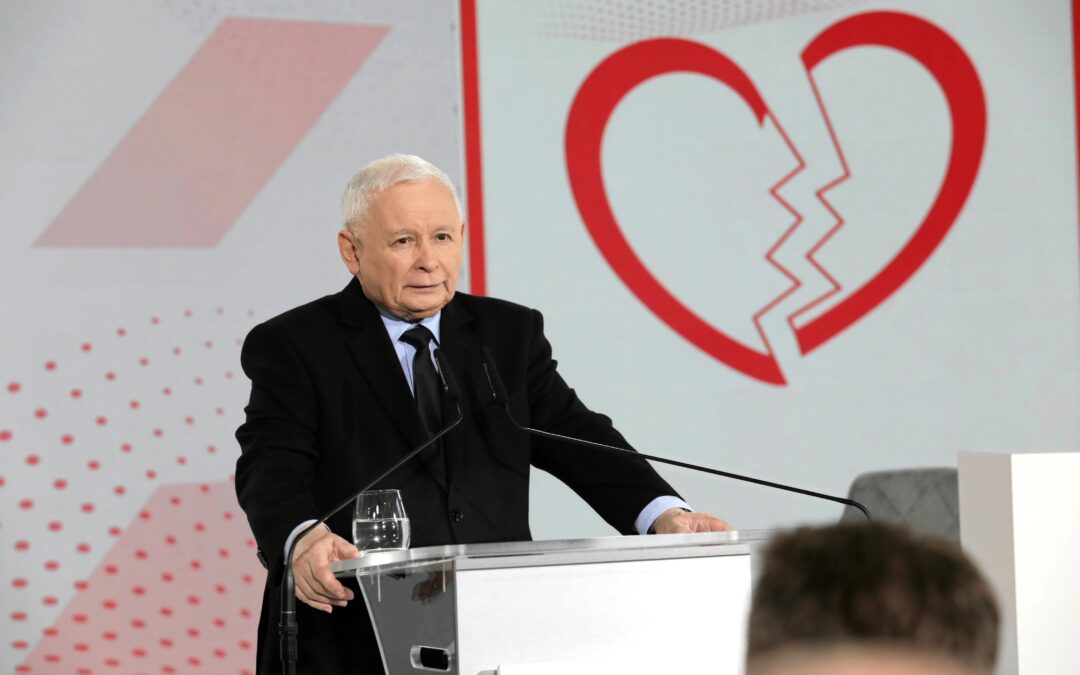By Stanley Bill
Since winning power in October 2015, the Polish government led by the Law and Justice (PiS) party has introduced a raft of changes to all levels of the country’s judicial system. Domestic opponents, along with the European Commission and the Venice Commission, have accused them of undermining the rule of law and flouting the Constitution. Protesters have filled the streets at regular intervals.
Yet the abstract nature of the changes and the political involvement of the parliamentary opposition have made it difficult for the resistance movement to gain any real popular momentum. Many Poles find the new laws excessive, but most also feel that the judicial system genuinely needs reform.
In this article, I put the key changes and their consequences together to show the big picture. Both the expert Venice Commission and the European Commission have emphasized that the cumulative effect of the reforms significantly exacerbates their potential consequences.
Most of the measures are concerning in themselves, but some are arguably defensible in isolation. Only when the changes are viewed together does the true scale of the threat to rule of law in Poland become clear. More broadly, I have described PiS’s steady slicing away of democratic institutions as “kielbasa tactics.” In a series of decisive cuts, the ruling party has subjugated the Polish court system, from the Constitutional Tribunal to the Supreme Court.
In consequence, Justice Minister Zbigniew Ziobro has accumulated extraordinary power. Not only is he the Public Prosecutor, but he has also gained significant influence over the common courts and over the body that appoints judges to the Supreme Court – which has just witnessed a mass purge of its members.
This politicization potentially has serious consequences for individual cases. The Justice Minister could theoretically intervene from the side of both prosecutor and court. Any appeal against a politicized verdict on politicized charges would only reach a similarly politicized Supreme Court. Perhaps most worryingly, the Supreme Court is also responsible for verifying election results.
The ruling party may not intend to reach for any of these levers. Yet the very fact of their availability represents a clear and present danger to Polish democracy.
The government has defended its reforms by arguing that it has a democratic mandate to deliver decommunization and increased efficiency. It is true that the Supreme Court includes judges who were members of the communist party and who even officiated during Martial Law in the early 1980s. This fact has damaged the judiciary’s public standing. However, such judges constitute a small minority.
The tarring of the entire Supreme Court – which includes former Solidarity activists – with the communist past is unjust propaganda. Moreover, it is hard to take the government’s intentions seriously when the leading face of its judicial reform campaign is MP Stanisław Piotrowicz, himself a communist prosecutor during Martial Law. Meanwhile, there is no evidence to suggest any likely gains in efficiency – so far, average length of proceedings has increased.
The government and the public media under its control have also presented the judiciary as a corrupt, already politicized elite or “caste.” It is true that the system has been deeply flawed – many ordinary Poles share stories of judicial ineptitude or corruption – and there have been instances of political interference in the past. The Constitutional Tribunal was also an imperfect body in its previous incarnation. But PiS’s cure – the systemic politicization of the judiciary at all levels – is far worse than the disease.
The current reforms meet no reasonable standard for the preservation of judicial independence in a democratic country. The Polish government and its supporters would do well to reflect on how they might react to the changes listed below if their political opponents were to introduce them.
Constitutional Tribunal
PiS’s term in power began with a spectacular controversy around the Constitutional Tribunal, the body responsible for assessing the constitutional legitimacy of government legislation. Party leader Jarosław Kaczyński had long resented the Tribunal for stymieing his political programme in 2005-07, but few expected the scale of the attack that followed in late 2015.
The outgoing government – led by the liberal Civic Platform (PO) party – triggered the crisis by illegitimately and cynically appointing 5 judges to the Tribunal (instead of 3) in its last month in power. PiS and President Andrzej Duda took full advantage of the opportunity presented to them in the ensuing confusion: they rejected the PO appointments and made 5 of their own (instead of a lawful 2, as adjudged by the Tribunal itself).
The government subsequently ignored and refused to publish various Tribunal rulings against these appointments, and then introduced legislation to paralyze the court’s operations. Eventually, with President Duda’s help, they managed to have one of their loyal new appointees, Julia Przyłębska, elected as President of the Tribunal (in an apparent breach of procedures). Soon they were able to make further appointments legally, and thus to gain a majority in the Tribunal.
The present Tribunal is a politicized body entirely incapable of fulfilling its constitutional function. Some of the PiS-led parliament’s appointed judges appear to lack substantial qualifications for their positions. Most appointees have had close ties with the party and its allies, sometimes even through party membership. In contradiction of the government’s claims about decommunization, one its party appointees, Henryk Cioch, was a former member of the Polish United Workers’ Party (PZPR).
In 2017, PiS’s new President of the Tribunal Julia Przyłębska was awarded the annual “Person of Freedom” prize by the strongly pro-government Sieci magazine. At the gala presentation, she was lauded by members of the ruling party and its supporters.
Poland no longer has an independent arbiter of its constitution.
Prosecutor General
In 2016, the government reunited the offices of the Prosecutor General and the Minister of Justice, which the previous government had separated in 2009.
While there is obviously a precedent for this arrangement in the Polish system, the Venice Commission argues that the merger of these functions is not best practice, as it allows for politicization of the prosecutorial service. Importantly, the new Act on the Public Prosecutor’s Office has also expanded the Prosecutor General’s powers. As a result, the Minister of Justice Zbigniew Ziobro – who has no prosecutorial experience – now potentially has the ability to intervene in individual cases.
This often-overlooked change is crucial to the overall impact of the government’s judicial reforms, which effectively subjugate the courts to a Justice Minister who is also the Prosecutor General.
Common Courts
In July 2017, when President Duda unexpectedly vetoed two of the government’s initial judicial reform bills, he signed a third bill into law: the Act on Common Courts. This law gave massive new powers over the common courts to Justice Minister Ziobro. Most controversially, the law gave the Minister a six-month period in which he could arbitrarily dismiss and replace court presidents.
Ziobro did not waste the opportunity. In an unprecedented purge, the Justice Minister fired almost 20% of court presidents (69 out of 377), and around the same number of vice-presidents. Other appointments to replace presidents whose terms had elapsed brought the overall tally of Ziobro’s new appointments to almost one-third of all court presidents.
Admittedly, the new Act also introduced random assignment of cases to judges, which the Venice Commission interpreted as a positive development. Nevertheless, some experts have argued that the new assignment system lacks transparency and remains under the control of the Justice Ministry.
Furthermore, the newly appointed court presidents will still have very significant powers. For instance, they may replace a judge on a case for the very loosely defined reason of improving “the efficiency of proceedings.” Since court presidents are now even more strongly subordinated to the Justice Minister, this opens up the systemic possibility of political interference.
National Council of the Judiciary
The National Council of the Judiciary (KRS) is the constitutional body charged with protecting “the independence of courts and judges.” The government has radically politicized this body, undermining its constitutional function.
After President Duda rejected the government’s initial proposal in July 2017, he drafted a new version of the law, which the parliament passed in December. Previously, 15 of the Council’s 25 members were elected by other judges. According to the new Act, these 15 members are now appointed by the parliament. The remaining members of the Council were already largely political appointees, including 4 MPs, 2 senators, a representative of the President, and the Justice Minister.
Of the 15 recently elected members of the Council, 9 were nominated by PiS and 6 by Kukiz’15, a right-wing grouping that has supported PiS’s judicial reforms. The nominees included judges and court presidents who had just been appointed by Justice Minister Ziobro as well as individuals with other strong connections to PiS and its supporters. Interestingly, there were only 18 candidates running for the 15 positions.
The National Council of the Judiciary is now a thoroughly politicized body. Apart from Minister Ziobro himself and the new appointees of the PiS-dominated parliament, the Council also includes the highly divisive government MPs Stanisław Piotrowicz and Krystyna Pawłowicz (a professor of law who is one of the party’s most uncompromising polemicists). The Council’s constitutional function of protecting judicial independence is clearly under serious threat.
Importantly, the Council also determines candidates for appointment to the Supreme Court.
Supreme Court
The government’s new Act on the Supreme Court lowered the retirement age for judges, effectively meaning that 27 out of 73 judges had to step down or ask for President Duda’s approval to continue (after consultation with the politicized National Council of the Judiciary). Less than half of the judges expressed a desire to carry on under these conditions. The president extended the tenure of 5 judges, while 7 were rejected.
The Act also ended the term of the First President of the Supreme Court Małgorzata Gersdorf, probably in direct breach of the Constitution (interpretations turn on whether the provision to retire judges in case of a reorganization of the judicial system trumps the constitutionally mandated six-year tenure of the First President).
The new Act expanded the Supreme Court to 120 judges, adding two powerful new chambers – the Chamber of Extraordinary Control and Public Affairs and the Disciplinary Chamber. According to the Venice Commission, these chambers – soon to be filled with new judges appointed by the politicized National Council of the Judiciary – are “above the other chambers.” Therefore, the Commission argues that “there is a risk that the whole judicial system will be dominated by these new judges.”
There are presently 44 new Supreme Court positions to be filled, with more openings to come in the wake of the recent forced retirements. In total, close to half of the 120 judges of the reconfigured Supreme Court are likely to be appointed by the newly politicized National Council of the Judiciary.
The new Act also includes an unprecedented system of “extraordinary appeals,” which will allow cases up to twenty years old to be revisited by the new chambers. The Venice Commission pointedly observes that this system “is not entirely identical to the old Soviet system, but has a lot of similarities with it.” Such a system would be destabilizing and would open the way to retrospective, politically-motivated abuses.
In an additional curiosity, the Act added the new concept of “lay judges,” non-experts who will sit in the new chambers, apparently to add an element of “popular” justice. The Act provided for 36 lay judges, but only 19 applications were received. In the end, only 13 of these candidates were appointed as lay judges, and 2 of those have already resigned.
Most worryingly, the Extraordinary Chamber will be the body responsible for declaring the validity of elections. Since the judges in this chamber will all be new appointees of the politicized National Council of the Judiciary, there is a significant risk of politicized decisions – or, at least, the perception of them – in case of electoral controversy.
The Venice Commission explains: “Electoral issues are by their very nature of the highest importance for politicians and it is therefore crucial to insulate judges deciding on electoral issues from political influence. By making electoral judges particularly vulnerable to political influence, the Draft Act creates a serious risk for the functioning of Polish democracy.”
Conclusion
All the separate changes listed above are serious. But the interaction of these diverse reforms in a singular system constitutes an authentic menace to Polish democracy.
Poland presently has no independent constitutional authority. At the same time, the Justice Minister has gained significant influence over both the prosecutorial service and the common courts. His government’s appointees dominate the body that will fill the newly reconfigured Supreme Court. Most dangerously, judges appointed by this politicized body will determine the legitimacy of any future elections.
The PiS-led government has eroded the rule of law and inflicted significant long-term damage on key democratic institutions in Poland. The task of repairing the destruction will be exceedingly difficult. Even if PiS loses the next elections, any future government will find it almost impossible to undo the changes without introducing similarly politicized solutions. They will face dilemmas of whether and how to remove large numbers of PiS political appointees.
The current parliamentary opposition inspires little confidence, and the future might bring new contenders further to the right than the government. PiS and its supporters may yet find that the precedents the party has established for the radical politicization of the judiciary can be used against them.
Democracy lives on in Poland, but dark clouds are gathering.
Main image credit: Protesters for the Independence of the Courts. Photo credit: Flickr/Sakuto (under CC BY-NC 2.0)

Stanley Bill is the founder and editor-at-large of Notes from Poland. He is also Professor of Polish Studies and Director of the Polish Studies Programme at the University of Cambridge. He has spent more than ten years living in Poland, mostly based in Kraków and Bielsko-Biała.
He is the Chair of the Board of the Notes from Poland Foundation.



















